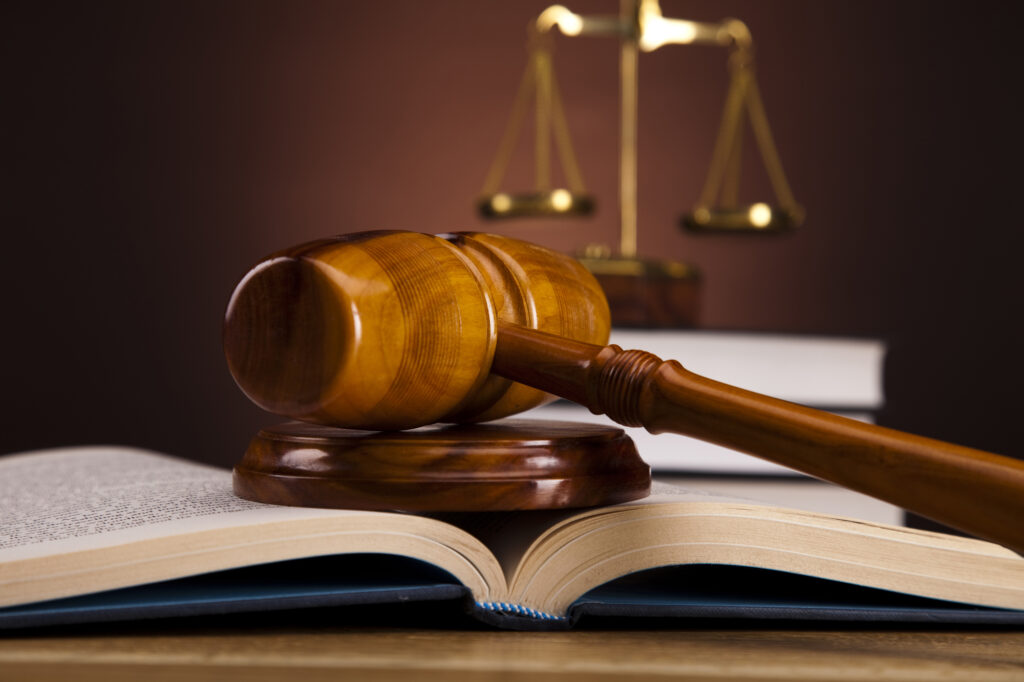On April 25, 2025, the Supreme Court of India, while deciding the case of P. Sakthi v. The Government of Tamil Nadu and Others observed that government employees have a right to be considered for promotion if they are otherwise eligible. The case was heard by a Bench comprising Justice B.R. Gavai and Justice Sandeep Mehta. The case is important because it deals with the right of government employees to be considered for promotion. The Court clarified that although promotion itself is not a guaranteed right, fair consideration for promotion is a constitutional entitlement under Article 16. The decision also addressed whether an old punishment, which was later cancelled, can still be used to deny someone a chance at promotion. This blog explains the case by covering the background facts, the Court’s reasoning, the legal provisions involved, and the significance of the judgment.
Read Also: Supreme Court’s Decision on Domestic Violence Case and Its Impact
Background of the Case: Right to be considered for promotion
P. Sakthi, a Police Constable in Tamil Nadu, was appointed in 2002. In 2019, the Tamil Nadu Police Department issued a notification to promote eligible constables under the 20% departmental quota. Sakthi applied for promotion to the rank of Sub-Inspector. However, his application was rejected due to a prior punishment from May 9, 2005, which involved the postponement of his next increment by one year, without cumulative effect.
The punishment was linked to an incident where Sakthi allegedly got into a fight with a colleague after duty hours. A criminal case was filed, and he was arrested but later acquitted. He also faced departmental action. Importantly, the punishment was later set aside, meaning it no longer had legal effect. Despite this, the authorities still used the cancelled punishment as a reason to deny him consideration for promotion in 2019. Believing this was unfair, Sakthi challenged the decision. The matter eventually reached the Supreme Court. The case was heard by a Division Bench comprising Justice Sudhanshu Dhulia and Justice K. Vinod Chandran, who ruled in Sakthi’s favour.
Read Also: False Promise of Marriage: Bombay HC Upholds Conviction
Judicial Remark by the Bench
“The consideration will be made and if found eligible, he shall be promoted from 2019 and consequential benefits also shall be paid to him, since it was not his fault that the authority denied his consideration for promotion based on a punishment which had already been set aside. It is trite that the employee has no right to be promoted but has a right to be considered, when selections for promotions are carried out, unless disqualified; which right has been impinged, unjustly, in the above case.”
This observation reaffirms a settled legal position that while promotion itself is not a guaranteed right, every eligible employee has a right to be considered, a right that cannot be denied unjustly, especially when the disqualification relied on no longer exists.
Supreme Court’s Observations and Reasoning
Right to be Considered for Promotion:
- The Court emphasized that employees do not have an automatic right to promotion, but they do have a fundamental right to be considered for promotion under Article 16 of the Constitution of India.
- This right to be considered is crucial and cannot be denied arbitrarily.
Impact of Nullified Punishment:
- The Court observed that the punishment imposed on Sakthi in 2005 had been set aside and was effectively treated as if it had never occurred.
- Using a nullified punishment to deny him consideration for promotion was found to be unjust and illegal.
- The Court noted that it is trite that an employee cannot be penalized for something that has been legally removed.
Failure in Promotion Consideration:
- The Court pointed out that the authorities had failed to consider Sakthi’s promotion on time, denying him his right to be fairly considered for the promotion.
- This delay and failure in promoting him was a violation of his right to equal opportunity.
Judgment and Consequential Benefits:
- The Court ruled that Sakthi should be promoted from 2019, and if eligible, he should receive all the consequential benefits, including arrears and seniority.
Judicial Quote by the Bench:
“The departmental proceedings though entered in the finding of guilt with resultant punishment imposed, the same was set aside in 2009 by the Government as is evidenced from Annexure P/4. In such circumstances, the appellant could not have been disentitled from a consideration in the year 2019.”
The Court held that once a punishment is nullified, it cannot be used to deny an employee promotion consideration. It concluded that Sakthi was unfairly disqualified from promotion and directed that he be promoted from 2019, with all consequential benefits.
Read Also: Karnataka HC on Section 91 CrPC vs RTI for Accused
Implications of the Judgment: Right to be considered for promotion
- Reinforces the Right to Be Considered for Promotion: The judgment reaffirms that every eligible government employee has a right to be considered for promotion, even if promotion itself is not a guaranteed right.
- Nullified Punishments Have No Effect: If a punishment is set aside, it cannot be used later as a basis to deny service benefits like promotions.
- Accountability of Authorities: Departments must ensure timely and lawful consideration of eligible candidates; failure to do so can be struck down by courts as unjust and arbitrary.
- Clarifies Scope of Disqualification: The ruling narrows what qualifies as a disqualification for promotion, ensuring that cancelled or reversed actions do not unfairly affect an employee’s career.
- Strengthens Employee Protections in Service Law: It sets a precedent that strengthens constitutional protections under Article 14 (equality before law) and Article 16 (equality in public employment).
- Encourages Fairer Promotion Practices: Government bodies are now under clearer obligation to apply promotion rules transparently and equitably, respecting employees’ service records accurately.
Notable Supreme Court Judgments
Supreme Court of India has previously addressed similar issues concerning the right to be considered for promotion and the impact of nullified or pending disciplinary actions on such considerations. Here are some notable cases:
Union of India v. K.V. Jankiraman (1991)
- Context: The employee’s promotion was withheld due to pending disciplinary proceedings, with the results kept in a sealed cover.
- Supreme Court’s Ruling: The Court held that if an employee is exonerated from disciplinary proceedings, they are entitled to promotion from the date it was due, along with all consequential benefits.
- Significance: This case established the principle that employees should not be denied promotion solely due to pending disciplinary actions, especially when they are later exonerated.
Union of India v. D.P. Singh (2016)
- Context: The case dealt with the right to be considered for promotion amidst changes in service rules.
- Supreme Court’s Ruling: The Court emphasized that employees have a right to be considered for promotion in accordance with the rules prevailing at the time of their eligibility.
- Significance: Reinforced that promotion considerations must align with existing rules, and employees cannot be disadvantaged due to subsequent changes.
Union of India v. Manpreet Singh Poonam (2022)
- Context: The employee’s claim for retrospective promotion was denied.
- Supreme Court’s Ruling: The Court reiterated that while there is no fundamental right to promotion, there is a right to be considered for promotion when it arises, in accordance with relevant rules.
- Significance: Affirmed that employees must be considered for promotion based on eligibility and existing rules, but retrospective promotions are not guaranteed.
K. Samba Moorthy v. Sanjiv Chadha (2025)
- Context: An employee was denied promotion due to a flawed disciplinary inquiry.
- Supreme Court’s Ruling: The Court ruled in favor of the employee, stating that a faulty disciplinary process cannot be the basis for denying promotion.
- Significance: Highlighted that disciplinary actions must be fair and unbiased, and any procedural lapses can invalidate the grounds for denying promotion.
These cases collectively underscore the judiciary’s stance that while promotion is not an inherent right, the right to be considered for promotion is fundamental. Moreover, disciplinary actions, especially those that are nullified or procedurally flawed, should not impede an employee’s promotion prospects.
Final Thought
The P. Sakthi judgment is a strong reminder that fairness and legality must guide promotion processes in public service. By ruling that a set-aside punishment cannot disqualify an employee from promotion consideration, the Supreme Court has reinforced the principle of equal opportunity under Article 16 of the Constitution. This decision not only protects the rights of individual employees like Sakthi but also strengthens accountability in administrative decision-making, ensuring that past errors or void actions are not unjustly used against public servants.




